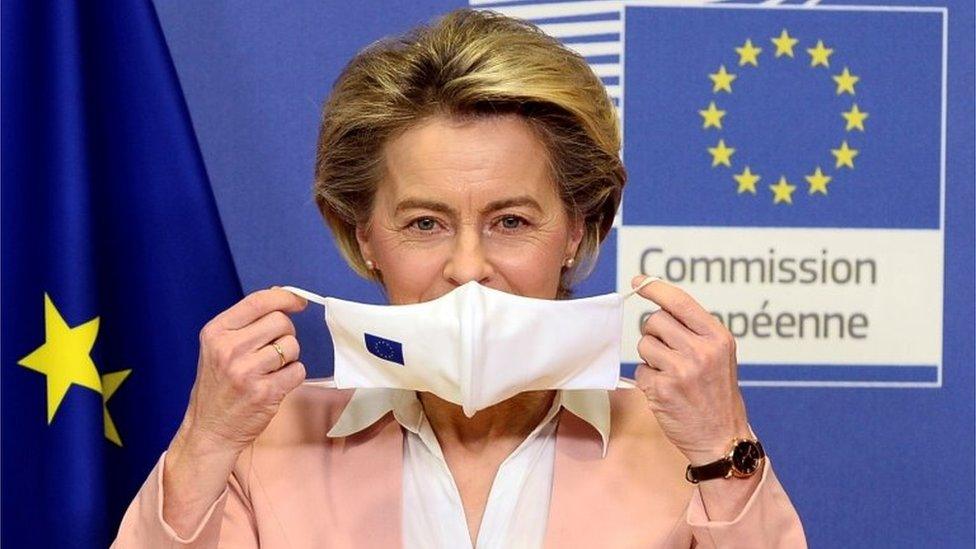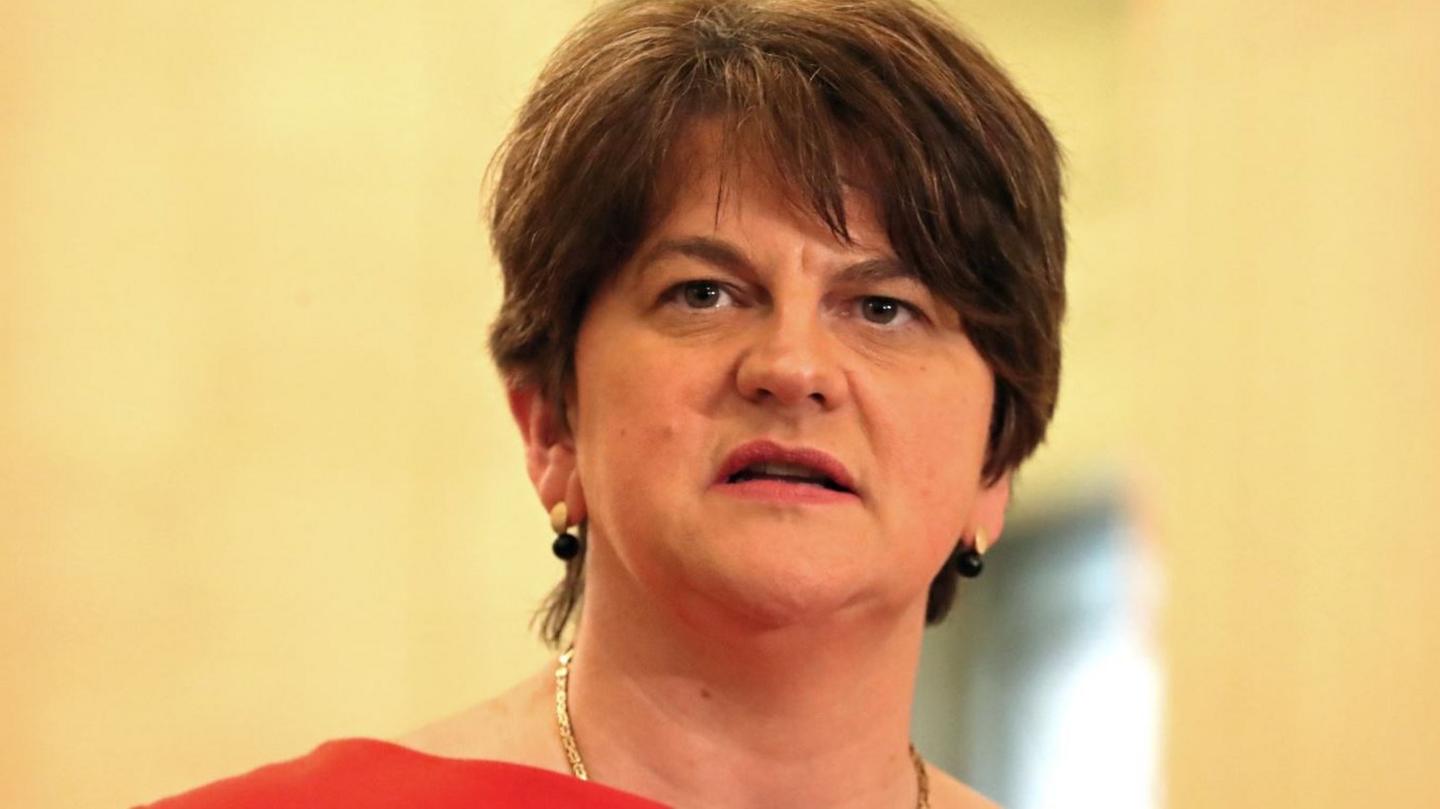Covid: What will be the fallout from the UK-EU vaccine row?
- Published

There is no question of the fury at EU chiefs' activities on Friday - and the horror in EU circles described by my colleague Katya Adler here.
Some messages flying around between Brussels and Westminster were too colourful to repeat here.
But after the fireworks, and attempt to quickly chuck cold buckets of water over them, is there anything left smouldering from those extraordinary events that matters in the long term?
One well placed insider has told me it's just too early to know, because it's not completely clear whether the EU Commission top brass tried at all to think it through.
If they considered the impact on Northern Ireland but went ahead, knowing the consequences could be major, that's a problem and implies a cavalier attitude to Northern Ireland.
If, on the other hand, they just hadn't realised the implications, it's alarming that senior figures were so naive - but, given the mistake was quickly corrected, perhaps not much harm has been done.
But others - on both sides of the Brexit debate - have made up their minds.
One close observer of Brussels and the European Commission said: "The Commission is scrambling given Europe's poor performance on vaccines and [its president Ursula] von der Leyen's top team is wobbling.
"Friday's mess shows Brussels never really cared about Northern Ireland - the veil has been lifted."
Ouch! Given that the EU, for years, talked about the importance of avoiding a hard border in Ireland and respecting the peace process, that is quite the accusation.

But some Brexiteers always believed that the EU was happy to use the conundrum of the Irish border as a proxy for its wider concerns about the UK leaving.
One senior Eurosceptic said the EU had always seen the Irish border "as a way to trap and bog down the UK".
Add in the UK's leading performance on vaccines and EU's embarrassment on its lack of progress, and it lashed out because the UK was not behaving according to its narrative that leaving the club would hinder, not help.
They claimed Brussels on Friday used the protocol as the "angry EU would use a stick to beat a dog".
Of course, there is pushback at those claims in diplomatic circles, pointing to exhaustion, misunderstandings, even a silver lining, that once the problem was clocked, there was still enough trust between EU leaders and UK ministers to fix it, and fast.
But only a month since the Northern Ireland Protocol came into force, the dilemma it creates is on sharp display.
'Fine-tuning'
Alongside the pandemic pyrotechnics, the protocol has already created many real issues in real life for Northern Ireland.
One unionist source suggested that, if these kind of issues were arising on the UK mainland, there would be intense political pressure to sort them out.
And the political explosion on Friday certainly creates more impetus to try to smooth out what's going on.
The DUP wants the whole protocol to be ditched, describing the prime minister's claims that the issues are "teething problems" as offensive.
That is not going to happen.
But there seems to be agreement that Friday's no-doubt-extreme example makes the case for what one diplomat described as "fine tuning", what another suggested might be "flexibilities or easements".
The UK government is trying to facilitate talks this week between the Northern Ireland Executive and the European Commission to try to find ways of making the protocol work more effectively.
An optimist suggests Friday's fuss could even work positively in the long term because it reminded the EU and the UK that "they have to learn to work together".
It is far too soon to know if they will be disappointed. Others worry that this could be the first in a long line of damaging political skirmishes between neighbours.
Brexit has changed so much, of course, but it hasn't redrawn the real-life map.
Related topics
- Published31 January 2021

- Published21 June 2021

- Published30 January 2021

